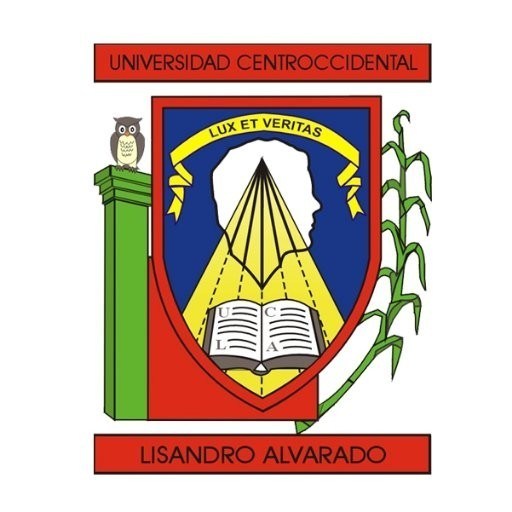The Bachelor of Science in Public Health at Rutgers University-Camden prepares students to understand and address complex health issues that affect communities both locally and globally. This comprehensive program offers a multidimensional approach to health, emphasizing the social, environmental, behavioral, and biological factors that influence health outcomes. Students will gain a solid foundation in epidemiology, health policy, biostatistics, health education, and environmental health, equipping them with the critical skills needed to develop and implement effective health interventions.
The curriculum is designed to foster a deep understanding of the social determinants of health and the disparities that exist among different populations. Through coursework and practical experiences, students will explore topics such as health promotion, disease prevention, healthcare systems, and global health challenges. The program also encourages students to develop strong analytical, communication, and research skills essential for careers in public health agencies, nonprofit organizations, healthcare institutions, or graduate study.
In addition to classroom instruction, students have opportunities for internships, community-based projects, and research initiatives that provide real-world experience. This holistic approach ensures that graduates are well-prepared to work in diverse settings and contribute meaningfully to improving population health. Employers in public health value the interdisciplinary perspective promoted throughout the program, along with the ability to analyze complex health issues and develop innovative solutions.
The Rutgers University-Camden Public Health program is committed to fostering a diverse and inclusive learning environment. Faculty members are dedicated to mentoring students and helping them achieve their academic and career goals. Upon graduation, students are equipped to pursue advanced degrees or enter the workforce with the knowledge and skills necessary to make a positive difference in public health. Whether interested in health policy, community health, global health, or epidemiological research, students will find a supportive and dynamic learning community that encourages growth, inquiry, and social responsibility.
Courses include:
* Public Policy Formation
* Economics for Public Policy
* Management/Organizational Behavior
* Non-profit Management
* Public Management
* Finance
* Budgeting and Public Policy
* Methods I: Research Design
* Methods II: Data Analysis
Program requirements for the Bachelor of Arts in Public Health at Rutgers University-Camden include the completion of a total of 120 credit hours, which encompasses general education courses, core public health courses, electives, and a capstone project. The general education component emphasizes foundational skills in writing, critical thinking, communication, and quantitative reasoning, typically comprising approximately 40-45% of the total credits. Students are required to complete courses in English composition, mathematics, social sciences, humanities, and natural sciences, with some courses offering integrative experiences that combine multiple disciplines.
The core public health courses provide a comprehensive overview of the field and include classes such as Introduction to Public Health, Epidemiology, Environmental Health, Health Policy and Management, and Community Health. These courses are designed to equip students with an understanding of the determinants of health, health disparities, and strategies for health promotion and disease prevention. Students must also engage in practical experiences such as internships or fieldwork, which aim to develop applied skills and professional competencies in real-world settings.
Elective courses allow students to explore areas of personal interest within or related to public health, including global health, health communication, health education, or biostatistics. Students are encouraged to select electives that complement their career goals and broaden their understanding of health issues.
In addition to coursework, students are required to complete a culminating capstone project, which involves researching a pertinent public health issue, analyzing data, and presenting findings both orally and in writing. This project integrates knowledge gained throughout the program and prepares students for graduate study or entry-level positions in health-related fields.
The program also mandates the completion of at least 15 credits in a related field or language to promote interdisciplinary understanding. Students must maintain a minimum GPA of 2.0 in their major courses to remain in good standing.
Additionally, Rutgers-Camden emphasizes experiential learning, and students are encouraged to participate in research projects, community service, and co-curricular activities that reinforce their academic pursuits. Certification or additional specialization might require completing specific courses or additional credits, depending on the student’s chosen career path.
Overall, the program is designed to produce graduates who are knowledgeable about public health principles, skilled in analytical and communication techniques, and prepared to pursue advanced education or careers in public health, healthcare, or related sectors.
Want to improve your English level for admission?
Prepare for the program requirements with English Online by the British Council.
- ✔️ Flexible study schedule
- ✔️ Experienced teachers
- ✔️ Certificate upon completion
📘 Recommended for students with an IELTS level of 6.0 or below.
The financing studies for the Public Health and Business Administration programs at Rutgers University-Camden encompass a variety of funding opportunities intended to support students throughout their academic pursuits. Financial aid options include federal and state grants, scholarships, work-study programs, and federal student loans designed to make higher education accessible and affordable. The university offers merit-based scholarships for outstanding students, which can significantly reduce the financial burden. Additionally, private scholarships from external organizations are available for qualified applicants, often targeting specific fields, backgrounds, or academic achievements.
Students are encouraged to complete the Free Application for Federal Student Aid (FAFSA) to determine eligibility for federal financial assistance, including need-based grants and loans. The university provides comprehensive financial aid advising to help students identify suitable funding options, navigate the application process, and understand repayment obligations. Work-study opportunities are available on campus, allowing students to gain work experience while earning money to fund their education.
Rutgers-Camden also promotes payment plans that enable students to distribute tuition payments over a period, easing the financial strain. For international students, scholarship opportunities and specific financial aid options may be more limited, but some funding resources are available through the university's Office of International Services.
In addition to institutional aid, students are encouraged to seek external funding sources such as private foundations, professional associations related to public health and business, and community organizations. Many students also consider federal and private loans, which provide necessary funds upfront with the obligation of repayment after graduation. The university maintains transparency about the costs involved and provides online calculators to help students estimate total expenses and planning for loan repayment.
Overall, Rutgers University-Camden aims to facilitate access to education through multiple financing options, providing students with the necessary resources to complete their degrees in Public Health and Business Administration and prepare for successful careers in their respective fields.
The Bachelor of Science in Public Health at Rutgers University-Camden is designed to prepare students for careers in health promotion, disease prevention, health policy, and community health initiatives. This program offers a comprehensive curriculum that covers essential topics such as epidemiology, environmental health, health education, healthcare management, and social determinants of health. Students gain a solid foundation in scientific and analytical methods necessary for understanding and addressing public health issues at local, national, and global levels. The program emphasizes interdisciplinary learning, encouraging students to collaborate across fields such as sociology, biology, and policy studies to develop effective solutions to health-related challenges.
Students also have opportunities for practical experience through internships, research projects, and community engagement activities. These experiences are designed to enhance their understanding of real-world public health applications and improve their readiness for graduate studies or employment in health agencies, non-profit organizations, and governmental bodies. Rutgers University-Camden's geographic location provides unique opportunities for fieldwork in urban health settings, homelessness, and environmental health concerns prevalent within the region.
The program aims to produce graduates who are capable of analyzing public health data, designing interventions, and advocating for healthy policies. It prepares students for advanced studies in public health, nursing, social work, or related fields. The curriculum is regularly reviewed to reflect current trends and challenges in the field of public health, ensuring students are equipped with relevant knowledge and skills. Successful graduates can pursue certification opportunities, such as the Certified in Public Health (CPH) credential, further enhancing their professional prospects. Overall, the program combines academic rigor with practical experience to nurture skilled public health professionals committed to improving population health outcomes.











